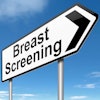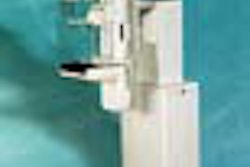While the U.S. radiology community absorbs the startling results of a Danish study casting doubts on the usefulness of mammography screening, the American Cancer Society has wasted no time in challenging the findings.
Dr. Harmon Eyre, the society's chief medical officer, said the ACS was in complete disagreement with the study's conclusions and reiterated that early screening does stem the death rate from cancer.
Published in the January 8 issue of The Lancet, the study, by researchers at the Nordic Cochrane Center of Copenhagen, evaluated eight mammography screening trials for bias. Two of the trials that came under scrutiny were the Canadian National Breast Screening Study and the 14-year University of Edinburgh randomized trial of breast-cancer screening.
In half of the eight trials they studied, the Danish researchers determined that the randomization was inconsistent; in 75% of the trials, the patients were not grouped according to similar age, socioeconomic status or other baseline characteristics, according to a January 7 Reuters Health article.
While the remaining two trials were acceptably randomized, mammography screening had no effect on breast-cancer mortality (relative risk=1.04) or total mortality (relative risk=0.99). In the six trials where a bias had been identified, the relative risk was 0.75.
"Screening for breast cancer with mammography is unjustified," concluded Dr. Peter Gotzsche and Dr. Ole Olsen.
But history has proven just the opposite, Eyre stated, citing a significant decline in death rates among U.S. women because of regular screening. According to ACS statistics, when only 13% of American women had mammograms in the early 1980s, the average size of a tumor was about 3 cm. By the late 1990s, 60% of women underwent screenings, and the average tumor size dropped to 2 cm.
"On a most basic level, we understand very clearly why mammography works," said Dr. Robert Smith, director of cancer screening for the ACS in Atlanta. "Mammography finds tumors when they are smaller. When you look at all the trials, the ones that were most successful showed the greatest mortality reduction. That’s what screening is intended to do."
Smith questioned the emphasis Gotzsche and Olsen put on randomization, pointing out that the methodology of the majority of the studies was sound.
"I don’t see that the concern about the randomization is a basis for dismissing screening," he said. "The one trial that (the Danish study) praises is the Canadian trial. That trial has been under a cloud of suspicion for its randomization from both supporters and opponents of mammography."
That 1993 Canadian National Breast Screening Study questioned the effectiveness of mammography for women aged 40 to 49, but critics considered it flawed, partly because the women included in the study were already at a higher risk for cancer.
A 1996 meta-analysis of several large studies by Swedish mammographer Dr. Laszlo Tabar and his colleagues at the Falun Central Hospital showed that screening could reduce mortality in women aged 40 to 49 by 49%.
More recently, studies have focused on whether older women benefit from mammography. Doctors at the University of California, San Francisco reported in the December 8 Journal of the American Medical Association that mammography screening after age 69 results in a small gain in life expectancy.
However, a study presented at the 1999 RSNA conference suggested that older women can benefit from mammography. Conducted at the Naval Medical Center in San Diego and the Tripler Army Medical Center in Honolulu, researchers found that a significant number of women, age 75 and over, died from breast cancer, despite comorbid medical conditions such as congestive heart failure, diabetes or coronary heart disease.
The medical community may continue to grapple with the relevance of preventive screening, but Smith of the ACS said he does not think the Danish study will keep American women away from the mammography suite.
"We find that most women appreciate how mammography works and why it’s important for them," he said. "They are concerned about breast cancer, and the simple logic of finding tumors earlier has given them confidence in mammography."
By Shalmali Pal
AuntMinnie.com staff writer
January 10, 2000
Copyright © 2000 AuntMinnie.com



















